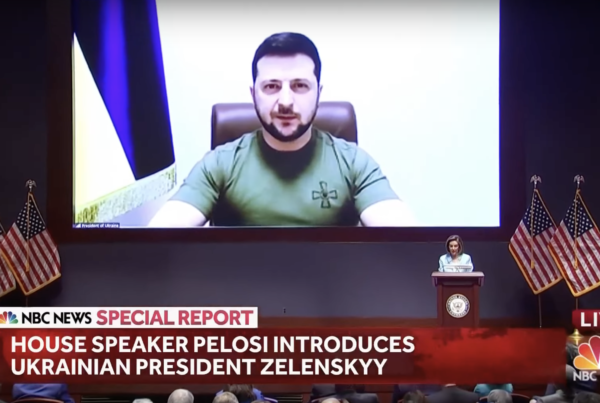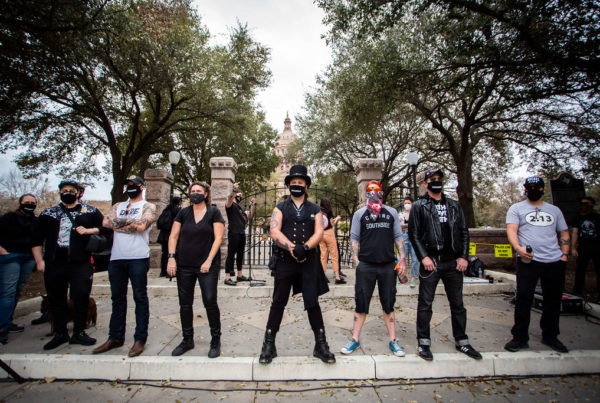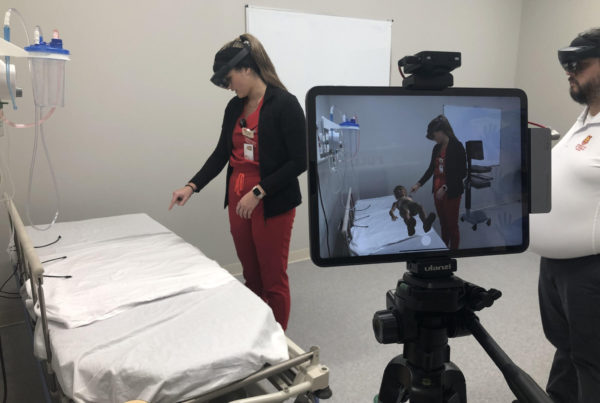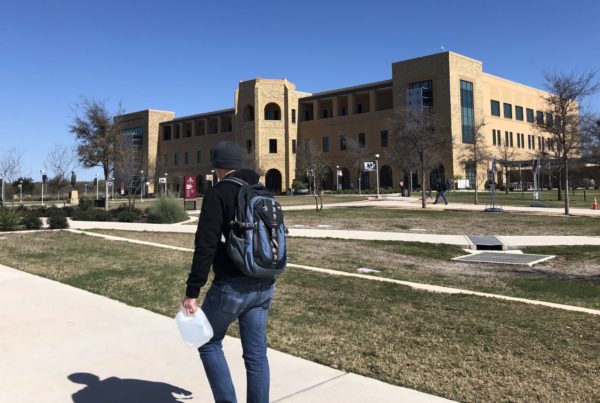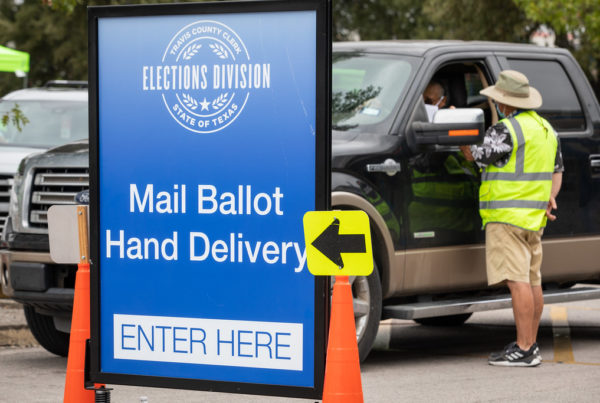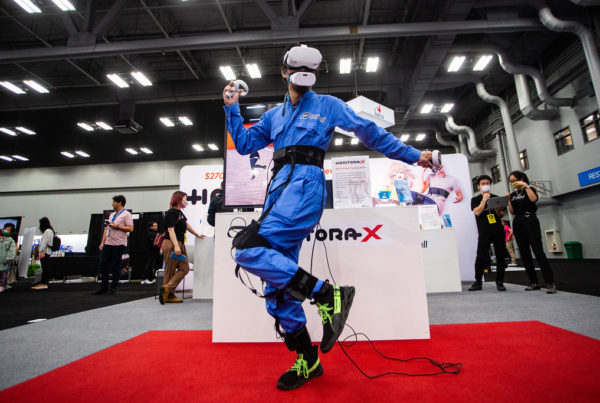Here are the stories on Texas Standard for Thursday, March 17, 2022.
During his address to Congress yesterday, Volodymyr Zelensky, president of Ukraine, asked the United States and its NATO allies to establish a no-fly zone over his country. John Schuessler professor of international affairs at the Bush School of Government and Public Service at Texas A&M University, weighs in on the potential consequences of such a move.
A new study by researchers at the University of Texas at Austin shows that essential workers, as well as people who earn a low income, faced a higher risk of contracting COVID than other segments of the population. We’ll talk to one of the study’s authors, Vivek Shastry, a graduate student at the LBJ School of Public Affairs.
When we think of virtual or mixed reality, most of us picture the future of video games. But at the University of St, Thomas in Montgomery County, mixed reality is being used to train future nurses. Houston Public Media’s Sara Willa Ernst went there to see how the technology gives students hands-on experience through a headset.
South by Southwest is in full swing in Austin. Tech expert Omar Gallaga has been checking it all out. He shares his biggest takeaways from the festival so far.
White adults are more than twice as likely than Latinos to have a college degree. The impact of that disparity is especially evident in a place like San Antonio, where the population is majority Latino. Texas Public Radio’s Camille Philips has been looking into why the gap exists and how to close it in a podcast called “The Enduring Gap.”
The new book “Educating the Enemy: Teaching Nazis and Mexicans in the Cold War Borderlands” examines a little-known period of history in Texas. It was just after World War II and the U.S. government recruited and relocated Nazi scientists to El Paso with their families. The book compares the privileged educational experience of German children with that of disadvantaged local Mexican American students in Texas. We’ll hear from the book’s author, Jonna Perrillo, an education historian and associate professor of English at the University of Texas.
Texas rejected an abnormally high number of mail-in ballots during its most recent primary elections. That’s according to a new analysis from the Associated Press. The AP reports roughly 13% of mail ballots returned in the March 1 primary were discarded and uncounted. Acacia Coronado, reporter for the Associated Press in Austin, speaks to the STandard about her reporting.
All this and Texas News Roundup, plus Michael Marks with the talk of Texas.




